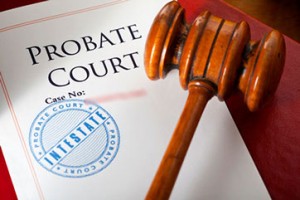

What is Probate
What is Probate – The term probate is as old as dirt. It comes to us from the Saxon law which used the term Probare to mean to claim a thing as one’s own. In more modern law is comes from the latin term onus probandi, literally to make proof or the burden or duty of making proof. Now the term is used to refer to the act or process of proving a will and distributing the assets of a deceased person (the decedent). If the decedent has a will, and names a personal representative, the person named is called an executor. If there was no will, or the will did not appoint a representative, or the person appointed has died, the person appointed is called an administrator. The administration of the decedent’s assets is required whether there is will or not. This process has been simplified in recent years, and in most cases, can be accomplished quickly and at reasonable cost. If the estate is administered through such a proceeding, the end result is binding on all of the heirs and other parties in interest. This can be contrasted with administering assets without the formality of a probate proceeding, which can be set aside in a later court proceeding.
What is Probate – Many types of property pass outside of the probate estate, so that the costly and legally complex steps to avoid probate are unnecessary. Many small estates can be raised, administered and closed within one year or less. Transferring assets to avoid probate frequently creates complex tax issues and costs associated with tax filings, transfer fees, and tax due on the transfer or due at death as part of the total tax calculations (which are frequently overlook by those proposing such steps). Probate avoidance can be useful tool for reasons other than tax avoidance, such as assuring control, and protecting the asset as well as the owner’s interest in it which might be compromised due the age of the owner, and to the acts of unscrupulous persons. Such steps should only be undertaken with the assistance of competent and trusted legal counsel.
The hiring of a lawyer is an important decision that should not be based solely upon advertisements.
Call Attorney C. Stephen Gurdin today at his office in Wilkes-Barre, Pennsylvania, 570.826.0481
Toll Free, 800.221.0618 to schedule a free initial consultation. Don’t delay.
